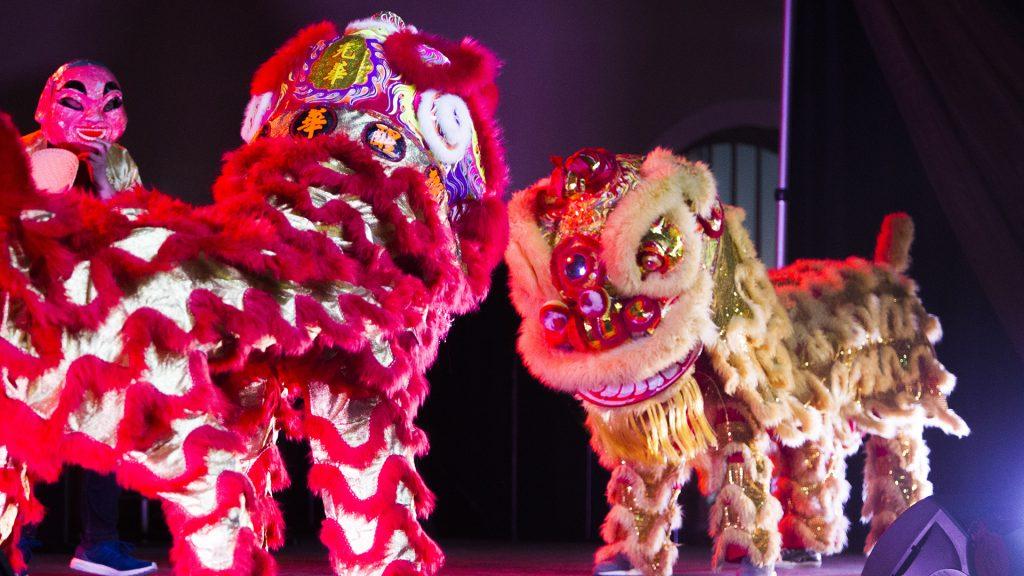It’s the holiday season at the University of Iowa once again.
On Feb. 16, students across the UI ushered in a new year, the Year of the Dog.
The Lunar New Year, or Spring Festival in China, is based on the ancient Chinese lunar calendar. Currently celebrated by one-sixth of the world’s population, it is a two-week festival that kicks off after the second new moon after the winter solstice.
“It is the equivalent of Christmas in the U.S.,” Aimee Xu of the Chinese Students and Scholars Association said. “When I lived in China, people would get time off work and school, and my family members would all travel to celebrate together.”
Currently, there are more than 2,000 students attending the University of Iowa who come from countries that celebrate the Lunar New Year. This number, however, does not include the many Americans who celebrate because of generational ties.
This highlights the importance of the university giving students a way to celebrate this holiday.
“The purpose of these events is to promote diversity and inclusion,” said Nick Roth, vice president of the Multicultural Business Association. “There are different ways of celebrating the new year, and there are many students here who celebrate the Lunar New Year as a major holiday.”
The business group, along with the Tippie Senate and the Greater China Business Association, hosted an event Thursday afternoon in the ground floor of the Pappajohn Business Building in anticipation of the Lunar New Year.
They catered Chinese food from restaurants around Iowa City and had activities such as a calligraphy station, lantern-making for the UI Stead Family Children’s Hospital, and the opportunity to make “Blessing Bags” for people in need, which were donated to the Johnson County Crisis Center.
They estimated that more than 200 people stopped by and had the opportunity to learn a little more about the holiday and help give back to the community.
The major event of the week took place in the IMU on Feb. 17, when the Chinese Association held a celebration open to all community members.
“This event is important because it gives international students a chance to celebrate a holiday that isn’t as popular here in the U.S.,” said Zeyu Song, the president of the association. “It also gives other people a chance to experience a different culture.”
The event had many activities for people in attendance. In the lobby of the IMU Main Lounge, games were set up with the opportunity to win prizes.
Prizes took the form of a red envelope, a tradition in China in which during the new year celebrations, children are given red envelopes containing money, often from their relatives. The Feb. 17’s envelopes contained coupons, and, if people were lucky, the traditional cold , hard cash.
Once attendees played their games and ate their share of Chinese pastries, the main events of the night began.



